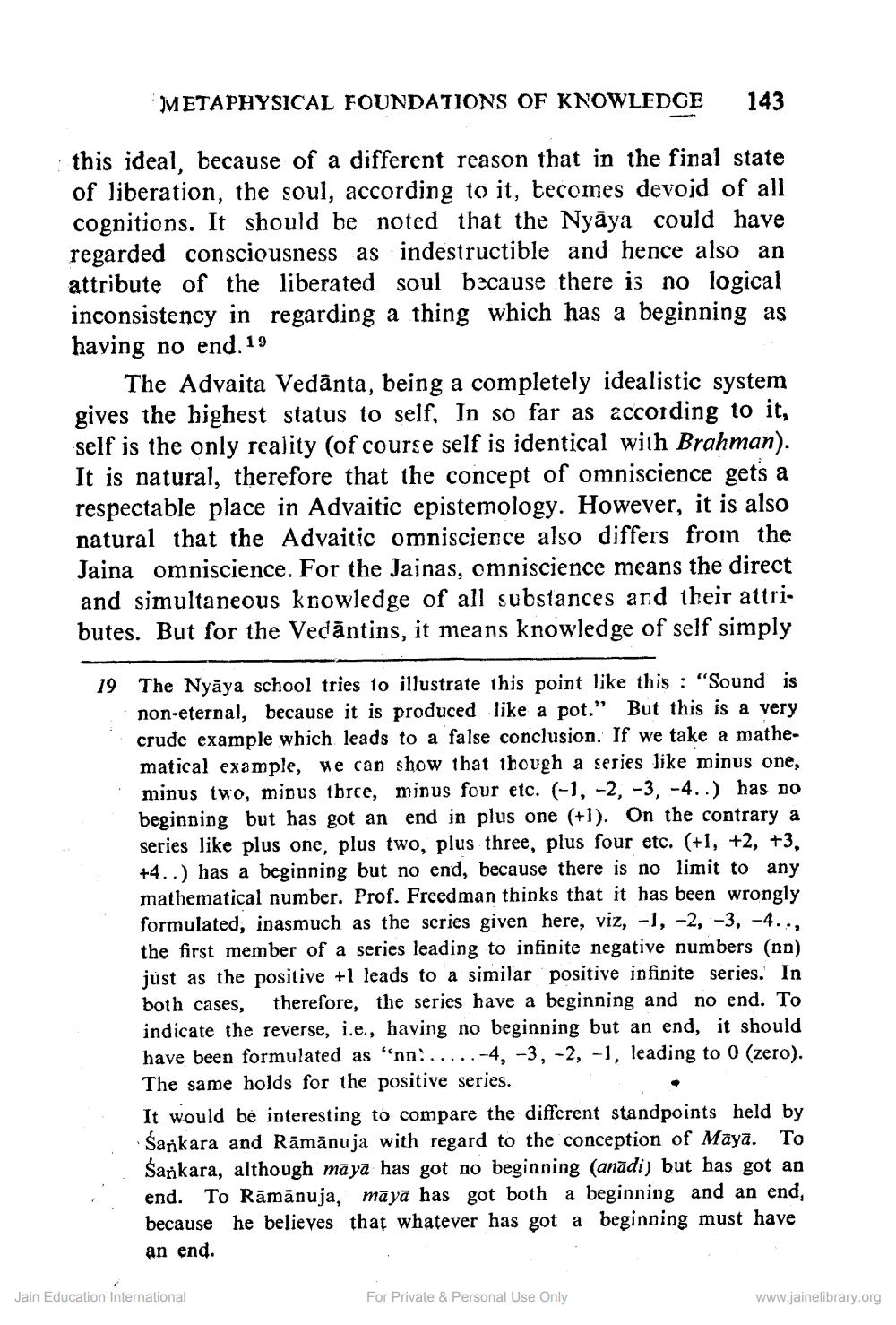________________
METAPHYSICAL FOUNDATIONS OF KNOWLEDGE
143
this ideal, because of a different reason that in the final state of liberation, the soul, according to it, becomes devoid of all cognitions. It should be noted that the Nyāya could have regarded consciousness as indestructible and hence also an attribute of the liberated soul because there is no logical inconsistency in regarding a thing which has a beginning as having no end. 19
The Advaita Vedānta, being a completely idealistic system gives the highest status to self, In so far as according to it, self is the only reality (of course self is identical with Brahman). It is natural, therefore that the concept of omniscience gets a respectable place in Advaitic epistemology. However, it is also natural that the Advaitic omniscience also differs from the Jaina omniscience. For the Jainas, omniscience means the direct and simultaneous knowledge of all substances ard their attributes. But for the Vedāntins, it means knowledge of self simply
19
The Nyaya school tries to illustrate this point like this : "Sound is non-eternal, because it is produced like a pot.” But this is a very crude example which leads to a false conclusion. If we take a mathematical example, we can show that though a series like minus one, minus two, minus three, minus four etc. (-1, -2, -3, -4..) has no beginning but has got an end in plus one (+1). On the contrary a series like plus one, plus two, plus three, plus four etc. (+1, +2, +3, +4..) has a beginning but no end, because there is no limit to any mathematical number. Prof. Freedman thinks that it has been wrongly formulated, inasmuch as the series given here, viz, -1, -2, -3, -4.., the first member of a series leading to infinite negative numbers (nn) just as the positive +1 leads to a similar positive infinite series. In both cases, therefore, the series have a beginning and no end. To indicate the reverse, i.e., having no beginning but an end, it should have been formulated as “nn......-4, -3, -2, -), leading to 0 (zero). The same holds for the positive series. It would be interesting to compare the different standpoints held by Sankara and Rāmānuja with regard to the conception of Maya. To Sarkara, although māyā has got no beginning (anādi) but has got an end. To Rāmānuja, māya has got both a beginning and an end, because he believes that whatever has got a beginning must have an end.
Jain Education International
For Private & Personal Use Only
www.jainelibrary.org




